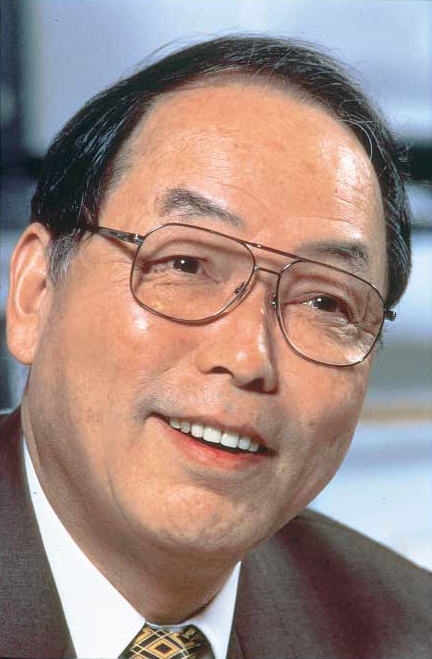Difference between revisions of "Isao Okawa"
From Sega Retro
| Line 6: | Line 6: | ||
In 1999, [[Hayao Nakayama]] left Sega, with Okawa taking his place as assistant president of the company. The following year, [[Shoichiro Irimajiri]] left, and Okawa was promoted to president. Isao Okawa inherited a company struggling in the video game console marketplace and is said to have tried extremely hard to keep the company afloat. He was engaged in talks with [[Microsoft]] in an attempt to get their [[Xbox]] console to run [[Sega Dreamcast]] games, and is said to have invested US$900 million from his personal fortune to help the company avoid bankruptcy. | In 1999, [[Hayao Nakayama]] left Sega, with Okawa taking his place as assistant president of the company. The following year, [[Shoichiro Irimajiri]] left, and Okawa was promoted to president. Isao Okawa inherited a company struggling in the video game console marketplace and is said to have tried extremely hard to keep the company afloat. He was engaged in talks with [[Microsoft]] in an attempt to get their [[Xbox]] console to run [[Sega Dreamcast]] games, and is said to have invested US$900 million from his personal fortune to help the company avoid bankruptcy. | ||
| − | On March 9, 2001, Okawa died of heart failure at Tokyo University Hospital at the age of 74. He was succeeded as president by [[ | + | On March 9, 2001, Okawa died of heart failure at Tokyo University Hospital at the age of 74. He was succeeded as president by [[Hideki Satoi]]. |
==Production History== | ==Production History== | ||
Revision as of 03:07, 13 July 2015
Isao Okawa was the president of Sega between 2000 and 2001. He was born in Osaka, Japan in 1926 and as a young adult he studied at Waseda University in Tokyo.
After graduating from Waseda he formed his own Computer Service Company, which later became known as CSK Holdings Corporation. In 1984, the company, then a multi-billion dollar Japanese conglomerate, bought Sega, renamed it to Sega Enterprises Ltd., and headquartered it in Japan. Two years later, shares of its stock were being traded on the Tokyo Stock Exchange.
In 1999, Hayao Nakayama left Sega, with Okawa taking his place as assistant president of the company. The following year, Shoichiro Irimajiri left, and Okawa was promoted to president. Isao Okawa inherited a company struggling in the video game console marketplace and is said to have tried extremely hard to keep the company afloat. He was engaged in talks with Microsoft in an attempt to get their Xbox console to run Sega Dreamcast games, and is said to have invested US$900 million from his personal fortune to help the company avoid bankruptcy.
On March 9, 2001, Okawa died of heart failure at Tokyo University Hospital at the age of 74. He was succeeded as president by Hideki Satoi.
Production History
- Sonic Adventure (1998) — Executive supervisor
- ChuChu Rocket! (Dreamcast Version) (1999) — Executive Supervisor
- Space Channel 5 (1999) — Very Very Very Executive Producer
- D-2 (1999) — Special Thanks
- Samba de Amigo (2000) — Executive Supervisor
- Samba de Amigo Ver. 2000 (2000) — Executive Supervisor, Executive Producer
- Sonic Adventure 2 (2001) — Executive Producer
- Sonic Adventure 2: Battle (2001) — Executive Producer
- Sonic Adventure DX: Director's Cut (2003) — Executive Supervisor (Sonic Adventure DX Staff)
| SEGA of Japan Executives | |
|---|---|
| Chairmen | Isao Okawa (1984-2001) | Hajime Satomi (2004-current) |
| Presidents | Hayao Nakayama (1984-1998) | Shoichiro Irimajiri (1998-2001) | Hideki Sato (2001-2003) | Hisao Oguchi (2003-2008) | Okitane Usui (2008-2012) | Naoya Tsurumi (2012-current) | Hideki Okamura (2014-current) | Haruki Satomi (2015-current) |
